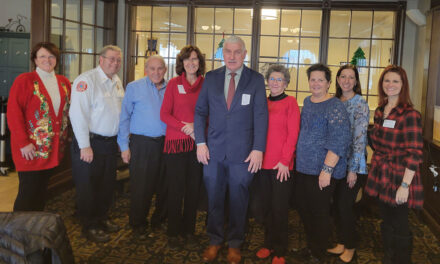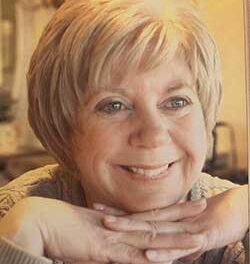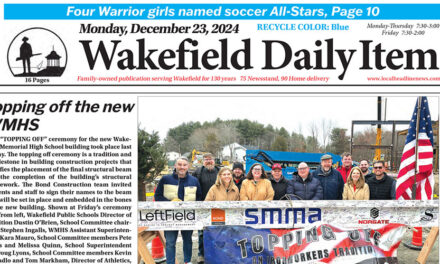By GAIL LOWE
WAKEFIELD — A summary of proposed changes to Wakefield Memorial High School’s program of studies was presented at Tuesday’s school board meeting by Principal Richard Metropolis and Guidance Director A.J. Beebe.
The proposed changes would affect Business, Technology and Culinary Arts; English Language Arts and World Language, among other courses.
In a memo to Superintendent of Schools Dr. Stephen K. Zrike, Metropolis and Beebe said that “curricular offerings are reviewed annually with department leaders to ensure that programming at the high school best serves student needs and college and career readiness and that courses with low enrollment numbers may not be offered.”
It also is understood, according to the memo, that limits in staffing levels will determine the school’s ability to offer all courses each year.
Following are the course changes:
• Business, Technology and Culinary Arts — Added Computer Science and Software Engineering.
• English Language Arts — Added AP English Language and Composition
• World Language — Added Latin III and AP French Language and Culture
• Mathematics — Eliminated Algebra 1B (the sequence is absorbed in year two by Algebra 1 Level 2), added Advanced Algebra and Trigonometry (a redesign of Trigonometry, functions and stats, added Probability and Statistics (part of above and a CP statistics offering), added AP Calculus BC
• Television — Changed the names of TV 1-4 to Introduction to Film and Video, Intermediate Video Production, Advance Video Production and Video Production Portfolio.
Elevated Advance Video Production (TV 3) to Honors level courses — Visual Arts team requested the elevation of these courses in their curriculum based on the required rigor in comparison to CP offerings and on the basis of the number of students who are continually studying at the next level with great success due to their advanced preparation in such courses.
Added Film Studies and Media Literacy for grades 9 through 12 as a Fine Arts requirement.
• Visual Arts — Added AP Studio Art
All students complete their course selections before February vacation, said Beebe. The tallies will then go to department heads to allocate their staff and they will meet with Metropolis for final approval. Once the data is available, next year’s master schedule will be established.
The memo also states that in order to assist students and families in arriving at a well thought out collection of courses, the guidance team will meet with all students in the district in small groups in grades 8 through 11. After the presentations, students discuss their choices with parents, teachers, guidance counselors and peers.
In particular, grade 8 students have an “action-packed opportunity” to consult multiple sources since they are visited by the high school guidance staff and tour the high school several times in January, courtesy of the Student Council. Students also attended “Academic Pride Night” this past Monday night, Jan. 12.
Tonight, information will be given at Grade 8 Parents Night.
—————
“This is the language of our world today.”
These words were spoken by Galvin Middle School technology teacher Erin Foley at Tuesday’s school board meeting during a presentation about (computer) coding, a course now being offered to students in grades 5 through 8.
Coding crosses over into fields such as engineering, architecture and building, from the ground up and, according to the U.S. Bureau of Labor Statistics, by the year 2020, 1 million programming jobs in the U.S. will go unfilled.
Further, traditional institutions, which largely treat introductory computer-science classes as barrier courses designed to weed out all but the most committed students, are demonstrably not meeting the need.
“Computer coding is a great thing to learn,” said Foley, adding that coding curriculum will expand in the future to prepare students for computer careers.
School board member Thomas Markham III agreed that “computers are part of our daily life” and that targeting even younger students will be important as the district moves forward with technology instruction.
In response to a question Gregory Liakos asked about elementary school students being prepared to embrace technology, Foley said that she has been meeting with technology teachers at the elementary and middle school level to determine what can be done to move students along the learning curve.
Dr. Zrike has said that he stands behind the effort 100 percent to move technology learning to the forefront of education in the Wakefield school district.
—————
On another educational matter, school board members approved a motion to add one paraprofessional to the Early Childhood Center staff.
Members Anne Danehy and Kate Morgan were absent from Tuesday’s meeting.




